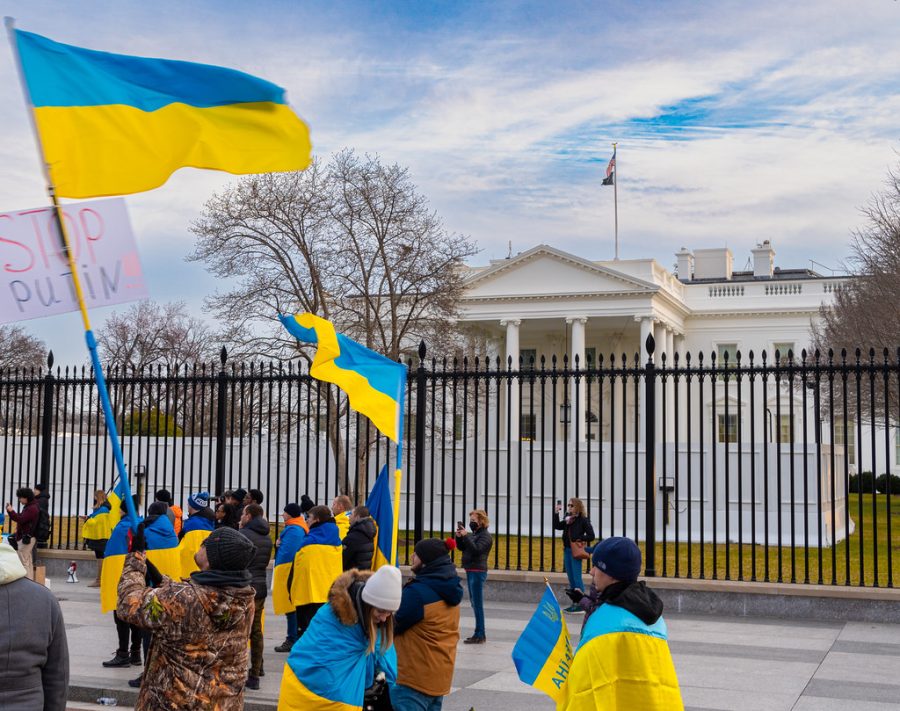What the Russo-Ukrainian War Means for the U.S.
March 22, 2022
The Russo-Ukrainian War, which first started in 2014 when Russia annexed Crimea, escalated this year when Russia started a full-scale invasion of Ukraine on Feb. 24. According to Vladimir Putin, the president of Russia, he felt that Russia felt unsafe due to the constant “threat” posed by modern Ukraine. He also said that he wanted to “de-nazify” Ukraine, and protect people who are subjected to genocide, but that’s false because there has been no genocide in Ukraine. Moreover, the president of Ukraine, Volodymyr Zelenskyy, is Jewish, as well the prime minister of Ukraine, which makes Ukraine the second country to have both a Jewish president and prime minister.
The U.S. along with other countries imposed harsh sanctions against Russia, including discontinuing the currency conversion between Russia and the U.S., preventing Russia from using funds it has in the U.S. and blocking the export of technology from Russia.
While some people still think that the involvement of the U.S. in the war was unnecessary, President Joe Biden said “this [war] is about more than just Russia and Ukraine. It’s about standing for what we believe in, for the future that we want for our world, for liberty, the right of countless countries to choose their own destiny, and the right of people to determine their own futures or the principle that a country can’t change its neighbor’s borders by force.” He continued by saying that “If we do not stand for freedom where it is at risk today, we’ll surely pay a steeper price tomorrow.”
The question now is, what does this war mean for the U.S.? Especially since the U.S. is part of the North Atlantic Treaty Organization (NATO).
NATO is a security alliance formed in 1949 with the Help of the U.S., Canada, and other Western European countries to protect against the Soviet Union. Since then, NATO has expanded with some other countries joining in.
The former Soviet Union republic Ukraine, while not officially a part of NATO, still has some treaties and agreements with NATO. With that being said, the war also determines the relationship between the U.S. and Russia.
An associate professor of political science and the director of Intelligence and Security Studies at Augusta University, Craig Alber, told ABC News “Ukraine is “strategically important” for Russia, the U.S., and NATO.”
Another important thing to note is that countries in Eastern Europe, who are part of NATO, also feel uneasy about the war, and the U.S., a member of NATO, feels the responsibility to protect its allies.
Like President Biden said, “Our forces are not going to Europe to fight in Ukraine but to defend our NATO allies and reassure those allies in the East.” He also added, “As I made crystal clear, the United States will defend every inch of NATO territory with the full force of American power.”
As for the direct effects of the war on the U.S., President Biden addressed the possible effects of the war, most prominently the increase in energy prices. Currently, gas prices are the highest they’ve been since July 2008. On top of a hike in energy prices, the U.S. is also warned against possible cyberattacks from Russia and the possibility of cyberwarfare.
As of now, there’s a lot of uncertainty about the war and the effects of the war itself.
Photo courtesy of FLICKR.COM

